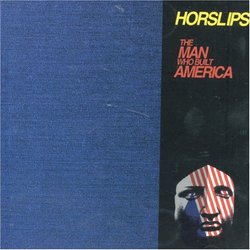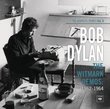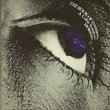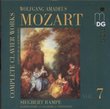| All Artists: Horslips Title: The Man Who Built America Members Wishing: 2 Total Copies: 0 Label: Demon Records UK Release Date: 3/7/2006 Album Type: Import, Original recording remastered Genres: Folk, Pop, Rock, Metal Styles: British & Celtic Folk, Folk Rock Number of Discs: 1 SwapaCD Credits: 1 UPC: 740155902025 |
Search - Horslips :: The Man Who Built America
 | Horslips The Man Who Built America Genres: Folk, Pop, Rock, Metal
Reissue of the folk/rock/progressive act's eighth studio album, originally released in 1978. Remastered at Abbey Road from the original tapes with repackaging from the band. The final piece of a trilogy, the theme is the e... more » |
Larger Image |
CD DetailsSynopsis
Album Description Reissue of the folk/rock/progressive act's eighth studio album, originally released in 1978. Remastered at Abbey Road from the original tapes with repackaging from the band. The final piece of a trilogy, the theme is the emigrant Irish population in America and it made the Billboard album chart. Standard jewel case. 2001 release. Similar CDs
|
CD Reviews3 1/2 stars: amplified arena rock drowns out most of the fol John L Murphy | Los Angeles | 09/24/2006 (3 out of 5 stars) "This is the second Horslips album I had bought when it came out in '78; in the U.S. their albums were not easy to find and only their recent ones had even been distributed on domestic labels. It was quite a change from my other LP, their 1972 debut, Happy to Meet, Sorry to Part (also reviewed by me), and the rating I'd give HTMSTP is like comparing apples to oranges, given TMWBA's nearly complete revision of their early pioneering Celtic rock-trad fusion from earlier that decade. My rating reflects this; it is (neither the two stars of Unfortunate Cup or Short Stories nor the five star Táin or Book of Invasions, and to be fair to those curious about Horslips it is misleading to heap five stars indiscriminately or too generously for all albums simply because I am a fan of this group.
This is simply not the same type of music, only the same musicians. On Dancehall Sweethearts, their first if more sonically modest foray into more mainstream hard rock, the liner notes tease that about its songs the guises of traditional tunes still lurked, if disguised. The budget for TMWBA is obviously bigger, and the amplified sound follows suit. Hearing this with its similar predecessor, Aliens (also reviewed by me, more reminiscent of Jethro Tull's similar evolution than are the arena styles essayed on TMWBA), the shift of the wishes of the dominant faction in the band towards what's been called a "West Coast production sound" (despite the East Coast producer Steve Katz being called in to gloss up the studio touches and streamline the delicate folk guises into the hard-rock garment) and the ensuing tensions among the five musicians as they were caught between their earlier but more insular Irish triumphs and the lure of an American breakthrough hit do create unintended tension, however faintly, beneath the louder, stadium-friendly approach here attempted. For an album of the later 70s that shows no new-wave/punk imitation, that eschews the pomp of prog-rock and the often bombastic concept album trappings that doomed many efforts by those popular bands favored on classic rock radio in the States then, this is a representative LP that has not become too dated for my ears nearly three decades later. Yet, the songs themselves, on closer inspection and scrutinized in the context of their career to date, prove uneven. Seven out of the ten (it seems that Horslips really stuck to this amount on their LPs--this at 40 minutes is actually one of the "longer" ones!!!) tracks match their MOR ambitions to respectable songs to varying degrees. Loneliness starts the LP well with its forlorn foghorns signalling the call of the emigrant ship. It and Tonight combine the sweep of the panoramic studio effects with sprightly folk-derived foundations. I used to always skip the needle past I'll Be Waiting. But the singing here is worthwhile. Even on the weakest LPs by Horslips, the vocals have kept my attention. They are assured, expressive, often extremely catchy, and rarely self-inflated or histrionic. But, this third track and the next, If It Takes All Night, do seem to snuggle up to a typical big power ballad and then bop about for the mid-tempo rocker that bands of this time and ilk invariably deliver. The lyrics on If It Takes do, in retrospect, rank among their less accomplished, nearing boastfulness more than craft. They may be meant to reflect the swagger of the character sung about, but the boasts tend to fall flat on my ears. These two songs themselves stumble, and at six-plus minutes I'll Be Waiting keeps this listener only impatiently waiting for a better song. Neither track is awful, but they slow the pace down of what would be side one considerably. Luckily, the dignified harpischord-like keys on Green Star Liner, the mandolin, pipes, flute, ballad chorus, and harmony vocals join for a fine pop song that by keeping closer to folk roots succeeds best. Side two's title track recalls the album's two expansive opening songs, but has no folk echoes beyond, yes, a brief Tullish-flute run. Its swirling Springsteen-ish keys, full-on guitar solos, and energetic bass-drum combo show how Horslips could create a radio-friendly song, and you can tell that here they are putting all of their bets on this track to make it big. The guitars remain the most dated here, and while Johnny Fean's grand abilities have never left him, their intricacy deserves more of a flourish than the standard grand gesture for the hockey rink crowd that this riff reminds me of. Comparisons to Tull at this stage of their career and Horslips' own are fair. Both bands had by now travelled nearly completely down a path that led them far from their experimental forays into other musics that they's mix with prog-rock. Both groups welcomed the larger technologically enhanced sound, and booming chords of anthems, that pleased more conventional fans wanting more accessible fare. Homesick fits into this type of song, flute against guitar, drum, bass, keys, with hard riffs and easy to sing verse-chorus-verse stories that make an impression easily. This again shows Horslips and their producer able to respond to the audience they sought with craft and while it lacks the intricacy of earlier music and themes, it drives the narrative home effectively. Expressively hushed vocals on Long Weekend and the slide guitar accompaniment on this sparer track also show that production taken down a bit, slowing to show off the keyboard roaming about and the melancholy atmosphere spreading as the laments sung find their instrumental counterpart. It's probably the best Horslips track in their rock mode which exploits space by emptying it more than filling it. Letters from Home rouses the tempo for entry nine. It's more workmanlike, no frills, and moves along not stolidly but without much room for ornament. Not great, but not as weak as the three tracks I mentioned. The chorus helps. The song goes on a bit too long with an added instrumental guitar run that risks tedium. The producer may be to blame here, for I sense that this segment's tacked on to lengthen the track to allow for the guitar solo in a live setting. Again, a middle- of- the- road, album- oriented-radio tailored track very much of its time and place. Long Time Ago returns to the wistful phase, to conclude the story of the emigrant now materially successful, if still spiritually and physically lonely, in the big city. The construction of the mandolin, flute, concertina and uileann pipes paired against the steady drumming and harmonies here makes another folk-rooted song, akin to the departure earlier on Green Star Liner, that ends the side of this record neatly. (Standard warning: this and all Horslips albums are meant to be heard in their band-remastered 2000-era Demon/Edsel reissues; avoid MOO/ Outlet/ Homespun unauthorized nth-generation versions.)" |

 Track Listings (10) - Disc #1
Track Listings (10) - Disc #1


